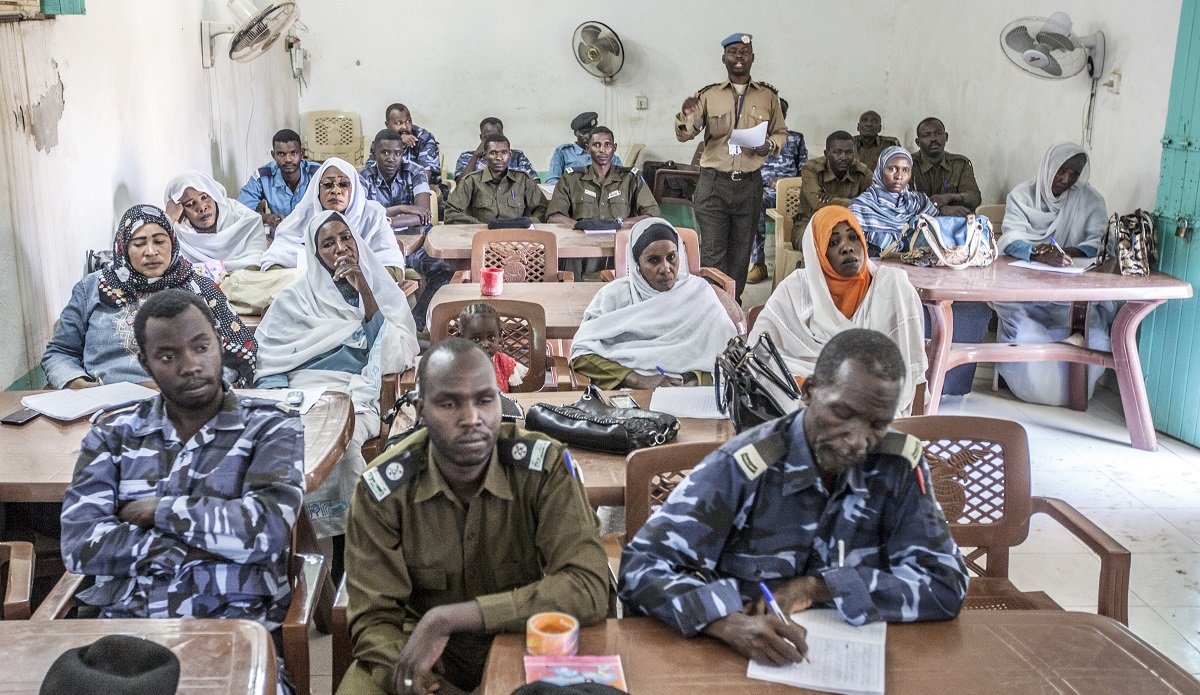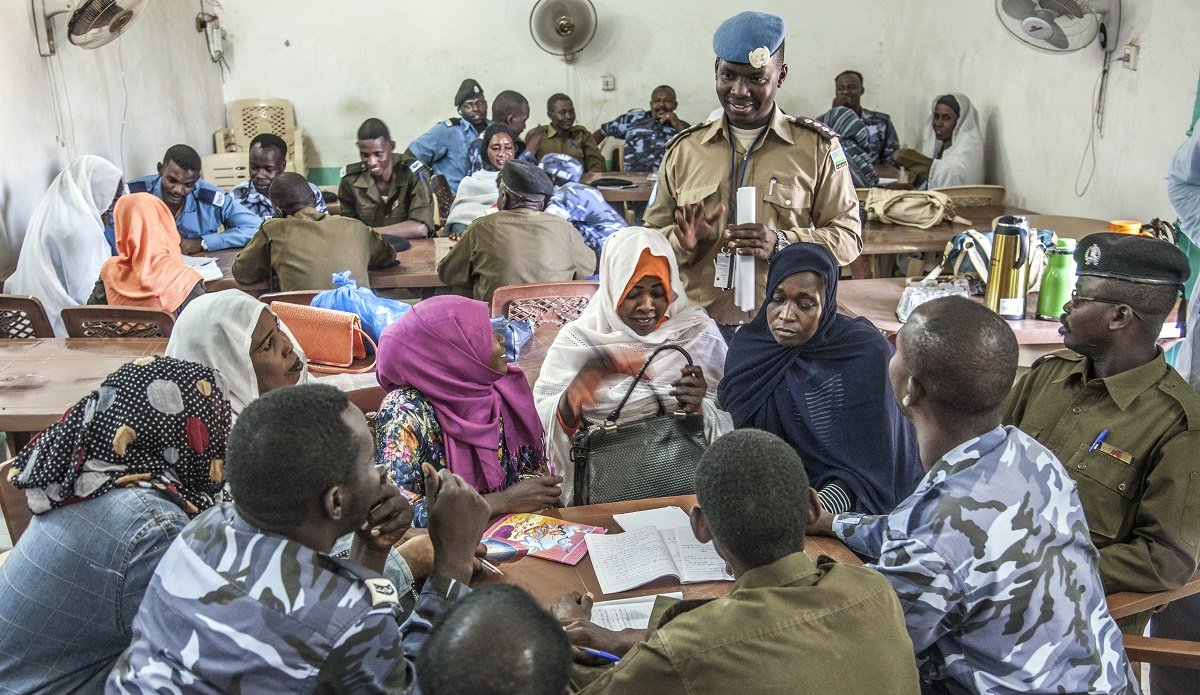Prison officers in North Darfur receive training on improving treatment of prisoners
On 1 December 2016, to equip prison officers with knowledge regarding international standards and best practices related to the treatment and care of prisoners, UNAMID's Rule of Law Section, in collaboration with the State Prisons Administration, concluded a two-week training course in El Fasher.
The workshop also introduced the 11 female and 19 male prison officers who participated to the UN Standard Minimum Rules for the Treatment of Prisoners (SMRs) and other conventions on detention of prisoners.
During the two weeks, participants covered admission and discharge procedures, documentation and record-keeping, principles of prison security, classification and placement procedures in prisons, prisons disciplinary procedures and rehabilitation for reintegration.
They also looked at disaster preparedness and management, health management, and treatment of vulnerable groups, gender justice and juvenile justice as part of extending a more protective environment to prison inmates.
Addressing the closing ceremony, John Omondi, Team Leader, UNAMID Rule of Law, North Darfur, said that the course aimed to build the capacity of the State Prisons Administration to comply with national and international instruments in relation to the treatment of prison inmates.“This approach will contribute to respect of the rights of offenders, within a safe and secure prisons environment,” he added.
Representing the Government of Sudan, Lt. Colonel Adam Mohammed Sinan, Police Commissioner, stated that the course enhanced the officers’ skills and knowledge to improve treatment and care extended to inmates, in accordance with human rights standards.
“Similar outreach workshops should be administered to more prisons service staff to enable them to have a broad understanding of prison environment and work, treatment and care to prisoners,” he said.
 UN
UN United Nations Peacekeeping
United Nations Peacekeeping





